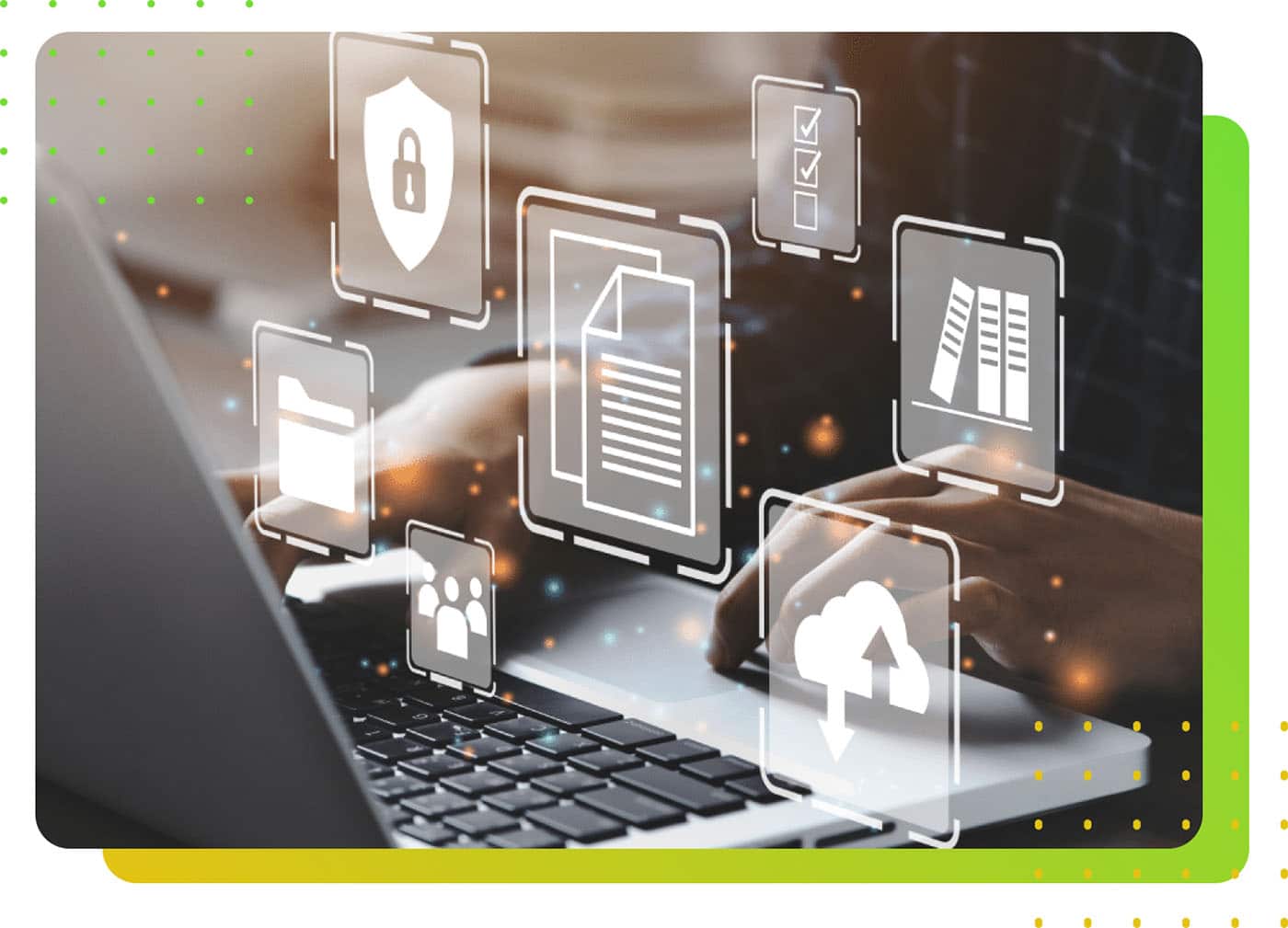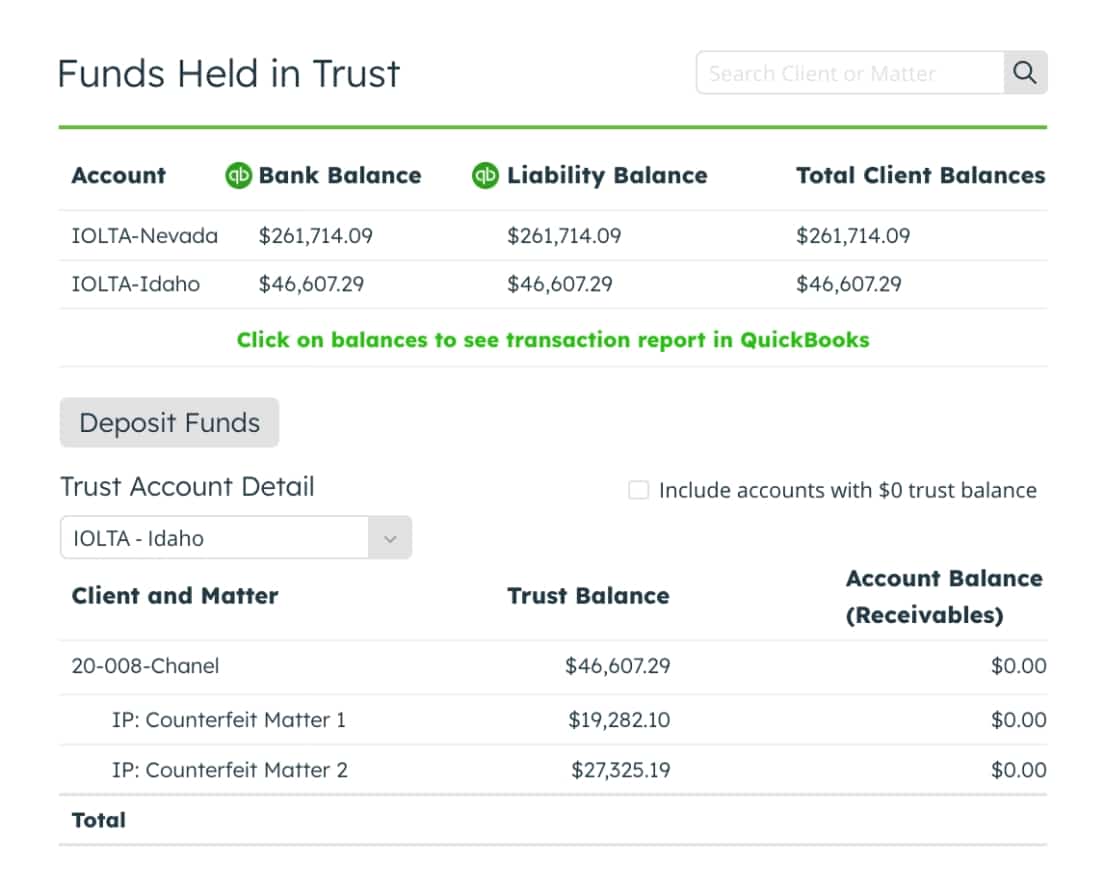
You’ve heard the hype around switching from an all-in-one practice management software system to a more customized tech stack that can be created for your law practice’s specific needs.
But you’re still not sure if that’s the best move for your firm’s business.
And for good reason.

Key Takeaways
- Even though all-in-one legal practice management software systems are quickly becoming a thing of the past, it’s hard for many law firms to stop using them.
- Understanding the difference between all-in-one software systems and a customized tech stack will make it easier to see the benefits of the latter.
- One of the most crucial pieces of a successful tech stack will be the implementation of the right accounting practice management software.
Legal practice management software can not only be expensive financially but can also cost an enormous amount of a firm’s resources as well.
From implementing user friendly software to training staff on how to use it effectively, it can take a good chunk of time to ensure that the chosen management software is being used to its fullest potential.
Not only that, but many practice management software systems require a lengthy time commitment, so it often feels as though – once you choose a certain all-in-one, comprehensive contract management system – you have to be prepared to commit to it for the long haul.
But – despite all your very valid reasons for not wanting to walk away from your current practice management software – there are now even more valid reasons why you should.
Let’s find out why.

What Do We Mean by All-in-One Practice Management Software?
All-in-one legal practice management software is a term that has often been used to describe a type of software that can handle many different aspects of law firm management in one package.
However, the term has become more ambiguous in recent years, as there are many more software providers on the market today…and all of them are offering slightly different variations on the original, all-in-one theme.
Traditionally, all-in-one legal practice management software would include features such as case management, time tracking, billing and invoicing, document management, client communication and calendaring.
These features were designed to allow for better workflow management from start to finish, with everything a law firm may need all in one place.
However, as technology has advanced, the term “all-in-one” has come synonymous with “cumbersome” as more and more attorneys and law firms are recognizing how ineffective and even unnecessary these systems actually are.
All-in-one practice management systems are no longer the practice management solution they once were.
For the modern law firm a more customized approach is beginning to be introduced.
Often called a “tech stack,” it is revolutionizing the field of legal practice management and giving law firms more control than ever over how their firms operate.

What Do We Mean by a Tech Stack?
A legal practice management tech stack refers to the collection of software applications, tools, and platforms that a law firm chooses to use to manage its day-to-day operations.
Rather than relying on a single, all-in-one software solution, a tech stack approach allows law firms to select and integrate different tools to create a customized workflow that suits their specific needs.
This modular approach allows attorneys and their staff to optimize their workflows, increase workflow automation, increase efficiency, and improve the practice’s bottom line.
A typical legal practice management tech stack will include a range of applications and tools, some more specific than others, depending on the size of the law firm and the area of law that’s being practiced.

Some of the most common tools in a firm’s tech stack will usually include the following:
- Case management software: This software is designed to manage all aspects of a law firm’s cases, from client communication to billing and invoicing. It can help track deadlines, organize documents, and manage tasks related to each case.
- Document management software: This software helps law firms manage large volumes of documents and files in a centralized location. It can help with version control, document sharing, and secure storage.
- Time tracking: This software allows law firms to track time spent on each task so they can bill clients accurately, and later generate invoices. Good time tracking software can help streamline billing processes and improve cash flow.
- Communication tools: Law firms need communication tools such as email, video conferencing, and instant messaging to stay in touch with clients, colleagues, and others involved in the firm’s operations.
- Billing and accounting practice management software: This software helps law firms manage their finances by tracking expenses, generating financial reports, and managing accounts payable and receivable.
- Client management: Client management tools are necessary for organizing, tracking, and maintaining information about clients and their cases.
From creating and storing client records, to tracking deadlines and appointments good client management software is necessary for creating and maintaining good client relationships. - Project management and task management software: This software helps law firms manage projects and tasks, assign resources, and track progress. It can help improve productivity and streamline workflow and repetitive tasks.
- Security and compliance tools: Law firms need tools to help them comply with regulatory requirements and keep their data secure. These tools can include encryption software, firewalls, and access controls.

The beauty of a well-thought-out tech stack is that firms can add or remove tools as needed to keep pace with changing business requirements or technological advancements.
When building a legal practice management tech stack, it’s important to consider how different tools integrate with each other.
Most of the more modern tools on the market offer integrations with popular platforms like Google Workspace or Microsoft 365, which enables data to flow seamlessly between different tools.
Another thing to consider it this:
Schedule a demo
Sometimes it’s going to be important to choose specific software tools for your tech stack that are designed for law firms only, as these tools will offer the features and functionality that are most relevant to the legal industry.
One software tool that should be specifically designed for a law firm is the billing and accounting practice management software.
Let’s dive deeper to understand why.

What Do We Mean by Billing and Accounting Practice Management Software?
Billing and accounting practice management software is a type of software designed to help law firms manage all aspects of the financial side of operating their law firm.
Legal practice billing and accounting software is designed to help law firms manage their finances, including client billing, invoicing, trust accounting, and general accounting.
This type of software provides an efficient and organized way to keep track of the financial aspects of running a law practice.
Well-designed legal practice billing and accounting software typically includes features such as automated billing, customizable invoices, time tracking, expense tracking, and reporting.
It can also handle trust accounting, which is crucial for law firms to ensure that client funds are properly managed and accounted for.
With trust accounting features, legal practice billing and accounting software can automatically calculate and track interest earned on trust accounts, as well as handle transfers and disbursements from trust accounts.
In addition to these basic features, legal practice billing and accounting software can also integrate with other tools in a law firm’s tech stack, such as document management software, CRM tools, and law practice management software.
This allows law firms to streamline their financial workflows and reduce the amount of time spent on administrative tasks, giving them more time to focus on serving their clients.

Why is Specialized Accounting Practice Management Software So Important?
It’s not just accounting firms and accounting and tax professionals who need to know how to crunch numbers.
No, you didn’t go to law school to spend your days looking at spreadsheets of financial data.
But having the right tools in place to be able to manage your firm’s finances is crucial to your success.
Without the right accounting practice management software in place, your firm can quickly fall into disarray, causing significant financial damage.
That’s why it’s important to invest in specialized accounting and billing software designed specifically for law firms.
Here are ten reasons why your law firm needs specialized accounting and billing software:
- Streamline Billing Processes: Specialized accounting and billing software streamlines the billing process, making it easy to generate and send invoices to clients quickly. This saves time and improves the accuracy of your billing.
- Time Tracking: Legal accounting software allows you to track the time spent on each project, ensuring that all billable hours are accounted for. This helps maximize revenue for your firm.
- Improve Cash Flow: With specialized accounting and billing software, you can improve cash flow by accurately tracking outstanding balances and payments due. You can also set up automatic reminders for clients who have outstanding balances.
- Accurate Accounting: Accounting software designed for law firms ensures that your books are always accurate and up-to-date, providing you with real-time financial information to help you make informed decisions.
- Customizable Reports: Specialized accounting and billing software allows you to generate customized reports that provide you with detailed information about your financial performance. This helps you identify any trends that are taking place as well as make informed decisions.
- Compliance: Legal accounting software helps ensure that your firm is in compliance with legal and regulatory requirements, particularly as they relate to trust accounting. This can help you avoid costly fines and penalties (possibly even disbarment) as well as an overall poor reputation in your community.
- Secure Financial Information: With specialized accounting and billing software, your financial information is securely stored and protected from unauthorized access.
- Improved Productivity: By automating many of your accounting and billing tasks, specialized billing and accounting software frees up your staff’s time, allowing them to focus on other important tasks.
- Scalability: As your firm grows, specialized accounting and billing software can easily grow with you, providing you with the flexibility to adapt to changes in your firm.
- Competitive Advantage: By implementing specialized accounting and billing software, your law firm gains a competitive advantage over those that do not. You can provide better service to your clients, improve your financial performance, and grow your business faster and better than before…all while never losing touch with the people who matter most – your clients.
Investing in specialized accounting and billing software is essential for any law firm that wants to succeed in today’s competitive business environment. The benefits of these tools are numerous and will provide your firm with the tools it needs to succeed.

Is LeanLaw the Right Billing and Accounting Solution for You?
When you’re trying to decide between various billing and accounting practice management solutions to add to your tech stack, it can be a bit overwhelming.
With many different billing and accounting practice management software systems on the market, knowing which one is going to meet your firm’s needs can sometimes be a bit tricky.
LeanLaw believes in being clear with its features and transparent in what it can do for you.
Schedule a demo
Here’s a quick breakdown of why LeanLaw’s legal billing and accounting software is the best tool to add to your law firm’s tech stack:
- Seamless QuickBooks Integration: LeanLaw’s legal billing and accounting software integrates seamlessly with QuickBooks, the industry-standard accounting software. This integration eliminates the need for double data entry and provides accurate real-time financial data for your law firm.
- Easy Time Tracking: LeanLaw’s software offers easy-to-use time tracking tools that allow lawyers to record their time spent on each task. This makes it simple for law firms to bill their clients accurately and efficiently, improving their client relationships.
- Automated Billing: With LeanLaw’s software, law firms can automate their billing process, making it easy to generate invoices and track payments. This saves time and ensures that billing is accurate and consistent.
- Trust Accounting: LeanLaw’s legal billing and accounting software includes robust trust accounting features, which are critical for law firms that manage client funds. These features ensure that your law firm is in compliance with accounting rules and regulations.
- Comprehensive Reporting: LeanLaw’s software offers comprehensive reporting tools that provide law firms with insights into their financial performance. These reports allow law firms to make data-driven decisions and to track their progress over time.
If you are ready to add the best billing and accounting practice management solution to your law firm’s tech stack, then schedule your free demo today!
We can’t wait to show you all the ways in which LeanLaw is going to be the perfect addition to your firm’s operations and help you rid your practice of all-in-one software systems once and for all.





